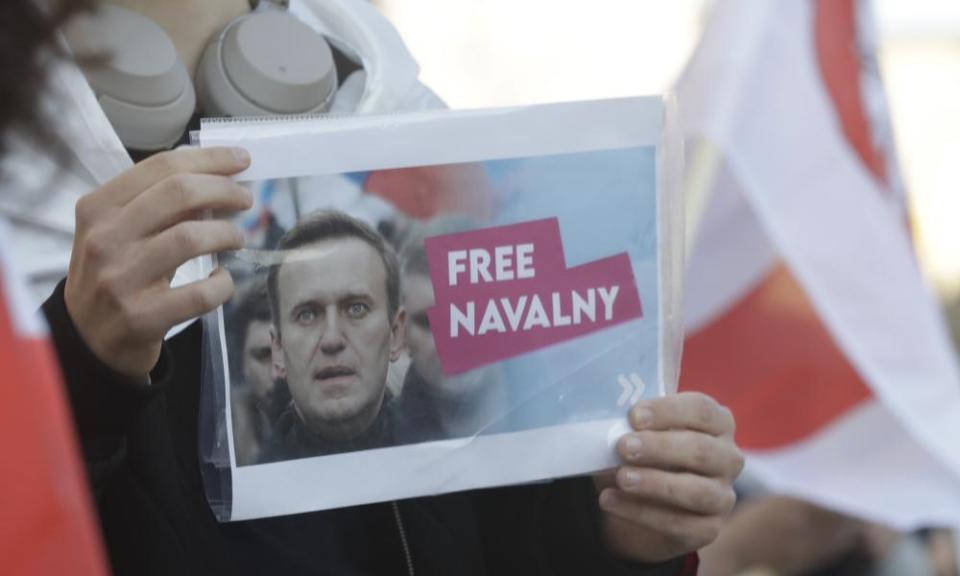The Russian state may come to regret outlawing Navalny’s organisations

On Wednesday 9 June, the Moscow city court issued a decision designating a range of organisations associated with Alexei Navalny – including the most important, the Anti-Corruption Foundation (FBK) – as extremist.
By Russian law, this equates them with Isis, making it illegal to collect money, recruit members, disseminate information, or participate in elections on Russian soil. The court endorsed the state prosecutor’s argument that Navalny’s supporters were planning to destabilise Russia in a “colour revolution scenario,” using “liberal slogans” as cover for their nefarious plans. In terms of its effects, it may be the most serious – and shortsighted – attack on the Russian opposition so far.
While foreign commentators tend to focus on Navalny himself, the ramifications of the decision extend much further. The popular movement Navalny has come to represent is the most ideologically committed to peaceful, nonviolent political change that Russia has ever seen. It has made millions of people, many of them young, into civic activists working to repair – rather than overthrow – the post-Soviet state. And, most importantly from the regime’s perspective, it has effectively no chance of ever taking power using its chosen means. Putin is far more entrenched and possesses a greater degree of legitimacy than other post-Soviet rulers. In closing a vital safety valve for what is otherwise a closed system, it is endangering its own future.
To understand why, it is important to keep in mind that the Russian regime extends far beyond Putin, just as the opposition is more than just Navalny. FBK activists have often focused their fire on the local and regional representatives of the ruling United Russia party (which is technically separate from Putin’s presidency), in part because this is the arena in which the system is most vulnerable. But by outlawing its challengers, Putin has identified himself even further with United Russia – a party that is significantly more unpopular than the president himself. Its corruption, deployment of “administrative resources” to manipulate elections, and inability to address the country’s underlying social and economic problems are well known even to people who oppose Navalny. According to a February poll, only 27% of Russians are ready to vote for United Russia in the forthcoming parliamentary elections; other polls suggest that this number has since dropped even further.
Related: Vladimir Putin refuses to guarantee Navalny will survive prison
Despite these grim figures, the party is likely to win at least a majority, and possibly a supermajority, of Duma seats. The regime’s long-term goal seems to be to make United Russia into a permanent party of power, much like the Communist party in the Soviet Union or Narendra Modi’s BJP in India. The Communists had considerable legitimacy, however, having presided over victory in the second world war and the subsequent economic expansion; likewise, the BJP has effectively leveraged Hindu nationalism.
United Russia has nothing comparable to offer. During the pandemic, per capita household incomes have dropped significantly – they are now equal to what they were in 2015 and some 40% lower in 2013. While this in part reflects the effect of western sanctions, the party’s failure to diversify the economy away from fossil-fuel exports has made Russia especially vulnerable to these sorts of shocks. Worse, it has not succeeded in creating legitimacy by using foreign and domestic enemies to generate a lasting, defensive nationalist reaction. More Russians sympathise with Navalny than with United Russia, and it has by now become clear to many that the state-controlled media uses crises in Ukraine and Belarus as a cynical distraction from internal problems.
The liberal opposition was, paradoxically, the regime’s best shot at gradual renewal. Its use of tactical voting and other attempts to game the system to advance reformist candidates was sometimes effective, but in the long run, without changes at the top, such improvements would be unlikely to yield comprehensive transformation. Instead, their piecemeal successes could be co-opted by the regime. The point is that liberal activists take the Russian constitutional order far more seriously than United Russia itself takes it. Though they know better than anyone that its promises are usually honoured in the breach, they are committed to making it work, unlike United Russia’s corrupt and self-dealing functionaries.
It is hard to say whether the decision to brand Russian liberals as extremists will lead them to go underground or embrace more radical forms of extra-parliamentary politics. But it will probably make future regime opponents more sceptical of both gradual change and the constitutional norms that make it possible. By breaking the promises it once made to civil society, the regime has ensured that future dissent will be more implacable and less controllable than it is now. That may mean an opening for the radical left, but it is more likely that hardline nationalism – catalysed by issues such as migration – will be a more appealing alternative. Navalny himself once flirted with these ideas, but gradually evolved into a liberal social democrat; his successors may make the opposite journey.
History suggests that moments of generational change in the political class – as when the Brezhnev generation gave way to a wave of younger leaders in the mid-1980s – pose particular challenges for dysfunctional systems. That moment in Russia is a few decades away, since Putin is not yet 70 and other leaders are in their 50s. But it will come eventually, and when it does the accumulated weight of the choices the regime has made will count for much.
The generation coming into its own in Russia is one that either does not remember the chaos of the 1990s or sees the failures of the post-2008 era as more decisive. The decision to crush Navalny’s network of liberal reform will be one of those failures.
Greg Afinogenov is assistant professor of history at Georgetown University

 Yahoo Movies
Yahoo Movies 